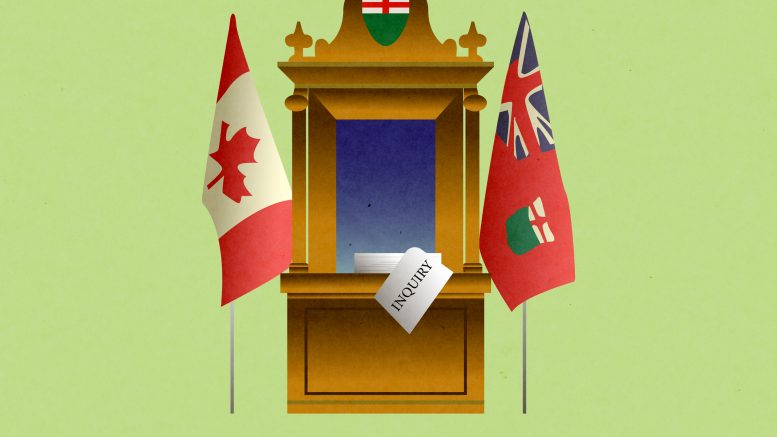If the government does not submit to aninquiry, NDP leader Wab Kinew promised to initiate one should his party win the next provincialelection in 2023.
“We need to have aninquiry that is independent, that is going to be willing to ask some toughquestions,” he said in the speech.
“But most importantly, to bring back some recommendations for thefuture.”
Accordingto the NDP, the proposed inquiry would examineprovincial decisions that contributed to Manitoba’s higher infection and deathrates, causing bigger outbreaks, longer lockdowns and more stress forhealth-care workers.
In addition to“[examining] decisions made during the pandemic,” NDP MLA and Critic for Health, Seniorsand Active Living Uzoma Asagwara said the inquiry should scrutinize the government’sactions in the years before COVID-19 hit.
“One example would bethe cut to ICU capacity and the cut to ICU beds leading up to the pandemic,which we all know contributed to the fact that in the third wave, we sent out57 Manitobans to other jurisdictions to receive life-saving interventions,”Asagwara said.
“We essentially set theprecedent across the country for having to do so during this pandemic andunfortunately we saw some heartbreaking outcomes as a result of our health-care system lacking theICU capacity within our own jurisdiction. We saw tragic outcomes for Manitobanswho , as a result of their own government’s refusal to invest, [were] sentaway.”
A Winnipeg Free Press investigation of the province’s health-care cuts published lastmonth found the government pushed through the plan without a risk assessmentand little consultation with nurses.
In addition to reducingthe number of ICU beds in Winnipeg from 76 to 63, the province slashed hundredsof health-carejobs, shut down several emergency rooms and quick-care clinics and cut $1million in funding for personal-care homes, leaving the province with severelyreduced capacity and staffing shortages in the years leading up to thepandemic.
Manitoba has thesecond-highest COVID-19 death rate in Canada behind Quebec.
Asagwara pointed outhealth-care professionals raised “alarm bells” about the province’s lack ofcapacity well before the pandemic and requested increased funding.
“Had the governmentlistened to those voices […] leading up to this pandemic, then we wouldn’t havebeen […] in the position we’ve been in throughout the pandemic, where we are[facing] an unprecedented health-care, human resources and staffing shortage crisis,” they said.
The NDP’s alternativethrone speech also pointed out the pandemic has exacerbated issues of housingaccess, addiction and mental illness.
Asagwara said addressingthe “social determinants of health” to facilitate positive health outcomes wasa “foundational principle” of public health.
“What we actually saw[during the pandemic] was the government actively working against addressingthose needs,” they argued.
Asagwara pointed outnegative health outcomes “directly correlate” with homelessness and overcrowdedhousing, where it is more difficult to practice social distancing or quarantinewhile sick.
“I believe we can alllook and see that not addressing housing accessibility, housing security andhousing safety directly correlate with people during this pandemic havingterrible health outcomes,” they said.
“The importance of thesocial determinants of health is monumental.”
The NDP in Alberta andOntario have also demanded inquiries into the way their conservativegovernments handled the pandemic.
Asagwara said it is“clear that there’s a lot to be learned from this pandemic.”
“There is a lot of reflecting andassessment and evaluation [that] should be done in order […] to learn from whathappened in this pandemic in terms of decisions that were made and the impactsof those decisions, in order to make sure thatwe’re better prepared in the future to face any crisis or challenge that maypresent itself again.”





